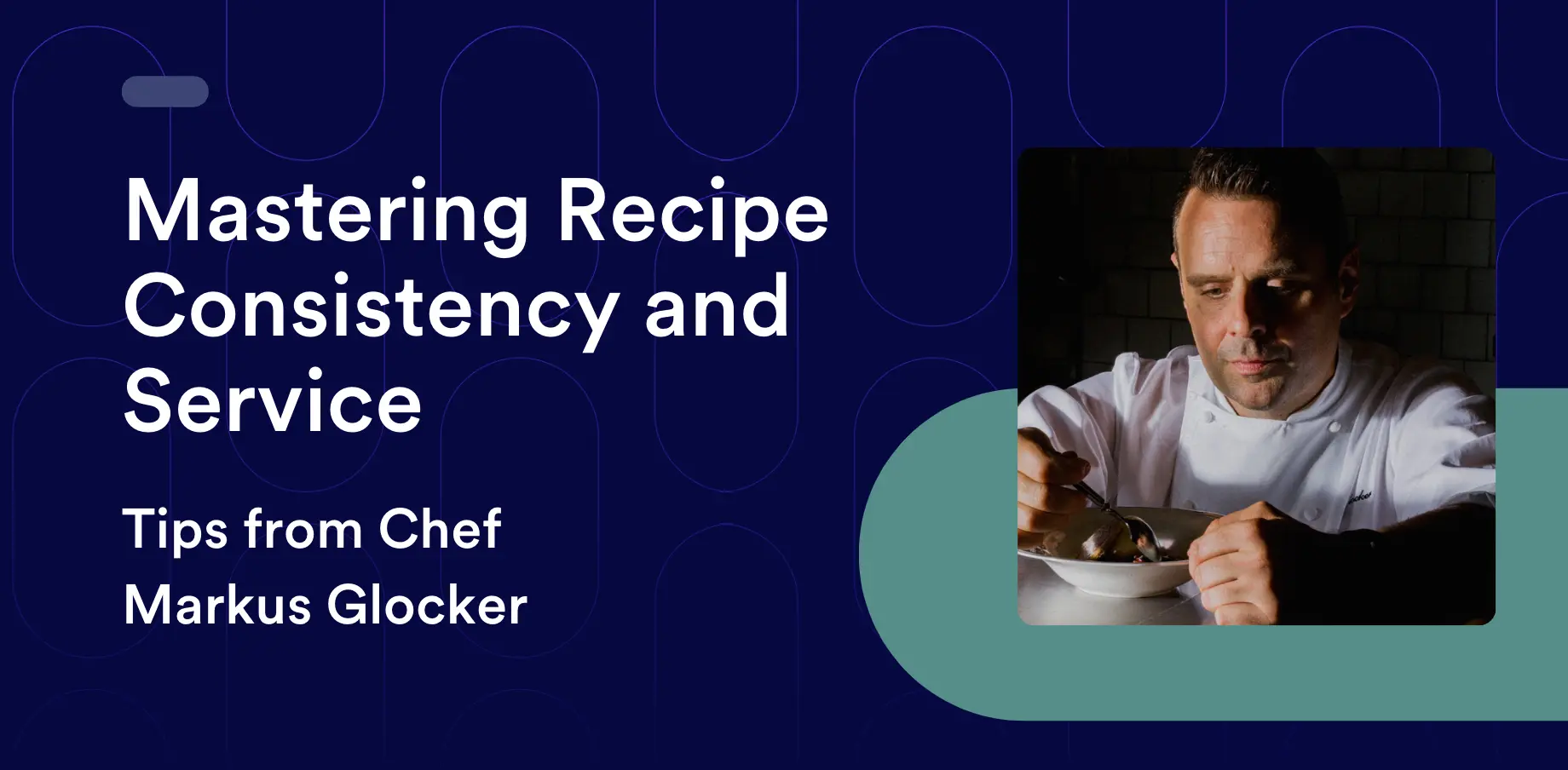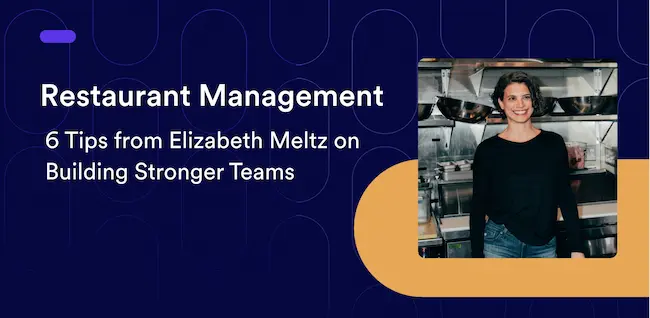Chef Markus Glocker has spent years perfecting his craft, from his early days in his family’s Austrian hotel to partnering with acclaimed chefs across Europe and the U.S. Known for blending Austrian heritage with French flair, Markus now brings his culinary vision to life at Koloman in New York City, where he masterfully balances innovation with the comfort of traditional flavors.
In an engaging episode of The meez Podcast, hosted by Josh Sharkey, Markus shares invaluable advice for chefs and restaurateurs alike. Here are key takeaways from his insights on menu creation, team dynamics, and staying true to a culinary vision.
1. Craft a Menu That Resonates with Diverse Tastes
Markus approaches menu creation with a delicate balance between innovation and accessibility. While many dishes pay homage to his Austrian roots, they are also crafted to appeal to a wide audience. For Markus, a great menu isn’t about overwhelming diners with complex techniques but about letting the flavors shine through simplicity.
At Koloman, he achieves this by keeping techniques subtle, hidden behind familiar flavors, allowing guests to enjoy a distinct taste without feeling lost in an overcomplicated presentation.
Takeaway:
A successful menu should invite diners in with familiar flavors and surprise them with subtle innovation. By focusing on taste and simplicity, you can connect with guests while keeping your unique culinary fingerprint.
2. Consistency is the Key to Excellence
For Markus, consistency is fundamental, both in the kitchen and in service. “You need a reliable team that can reproduce dishes with the same quality every time,” he explains.
Consistency not only reassures returning guests but also builds a reputation of excellence that’s essential in fine dining. At Koloman, Markus has developed a culture where attention to detail and precision in execution is paramount, a philosophy he attributes to the influence of mentors like Eckart Witzigmann and Gordon Ramsay.
Takeaway:
Consistency builds trust with guests and sets the standard for quality. Establish practices that reinforce attention to detail and make consistency an achievable goal for everyone on the team.
3. Balance Profitability with Creativity
Every chef faces the challenge of balancing profitability and creativity. High-cost dishes can be thrilling to create but unsustainable without careful planning. Markus shares how he evaluates each menu item by its cost and popularity, often revisiting the value of signature dishes.
Koloman’s menu is a testament to his commitment to offering high-quality ingredients without compromising the bottom line. By analyzing the cost-benefit ratio of each dish, he can sustain a menu that both excites diners and supports his restaurant’s financial health.
Takeaway:
Regularly assess your menu to find the balance between innovative, high-cost dishes and profitable staples. A thoughtful approach can make your menu both creative and financially sustainable.
4. Build a Collaborative Front-of-House Culture
Markus underscores the importance of collaboration between the kitchen and the front-of-house. He views service as an extension of the kitchen, essential for creating a cohesive guest experience.
At Koloman, the team emphasizes collaboration to ensure every diner receives impeccable service that complements the food. Working closely with talented staff, like Austria’s Katja Scharnagl, Markus ensures that his dishes are elevated by knowledgeable wine pairings and attentive service.
Takeaway:
The synergy between kitchen and front-of-house is essential to creating an unforgettable experience. Foster a culture where both sides understand and support each other’s roles to enhance the overall dining experience.
5. Nurture Your Talent
Like many chefs today, Markus recognizes the challenge of attracting and retaining skilled kitchen staff. He believes that providing growth opportunities and fostering a supportive work environment is crucial in today’s competitive culinary world.
By offering mentorship and empowering his team, he creates an environment where cooks can thrive and stay motivated to produce their best work.
Takeaway:
Invest in your team by creating opportunities for growth and skill-building. When employees feel valued and are encouraged to develop their talents, they’re more likely to stay and contribute positively to the restaurant’s success.
6. Know When to Say No to Trends
Markus doesn’t believe in following trends just for the sake of it. For him, staying true to his culinary roots and providing a unique dining experience is more important than keeping up with the latest fads. He avoids adding ingredients or techniques that don’t resonate with his brand or vision. This authenticity has helped Koloman stand out, providing diners with an experience that is as genuine as it is memorable.
Takeaway:
Stay true to your vision and avoid chasing trends that don’t align with your culinary philosophy. Authenticity resonates with diners, and a clear identity helps your restaurant stand out.
7. Don’t Estimate Great Service
Markus emphasizes that while food quality is crucial, service plays an equally, if not more, significant role in the overall guest experience. He suggests that chefs often overlook the impact of front-of-house operations, which can account for 60-70% of a dining experience.
A consistent atmosphere, friendly service, and a memorable dining environment can elevate the food, making guests more likely to return. He encourages chefs to recognize that even the best food cannot compensate for poor service, and maintaining a cohesive experience is essential.
Takeaway:
Train your front-of-house staff to understand that their role is just as critical as the kitchen's. Foster a culture where servers feel empowered to enhance the guest experience, ensuring consistency in how customers feel when they enter the restaurant.
8. Adapt Your Management Styles
To foster a positive kitchen culture, Markus emphasizes strong interpersonal connections and the importance of respect and support among team members. He believes in creating opportunities for growth and allowing chefs to make mistakes in a safe environment, where discipline coexists with mentorship.
Markus has shifted towards a more approachable leadership style, advocating for chefs to act as mentors instead of tyrants. By establishing trust and open communication, he encourages a collaborative atmosphere where team members take ownership of their responsibilities.
Takeaway:
Leverage relationships to recruit talent aligned with your culinary philosophy. Be transparent about your management style and encourage open communication. Create an environment where mistakes are learning opportunities and emphasize mentorship to guide less experienced cooks.
9. Thorough Training is Necessary
Markus underlines the necessity of thorough training, especially for inexperienced cooks. He believes in investing time in developing their skills rather than rushing them into roles they are unprepared for.
By pairing new staff with experienced team members for several days, he aims to ensure that newcomers feel confident and equipped to succeed. This not only enhances performance but also reduces turnover, as employees who feel supported are more likely to stay in the long term.
Takeaway:
Implement a structured training program that lasts several days, allowing new hires to learn and adjust before they are expected to perform independently. Ensure that all cooks understand fundamental kitchen processes, such as mise en place, and provide them with tools and resources to succeed.
10. Prioritize Mise en Place
Mise en place, or the practice of organizing and preparing ingredients before service, is a critical element of kitchen efficiency. Markus teaches his team to prioritize this preparation and emphasizes that proper setup can minimize errors during service.
He encourages a culture of accountability, where team members understand the importance of their roles in achieving a smooth service. Regular checks and routines ensure that everyone is prepared, and mistakes are addressed before they affect the guest experience.
Takeaway:
Develop a daily checklist for your team to follow, covering all aspects of preparation and service. Encourage a culture of accountability where each team member takes ownership of their responsibilities, creating a sense of pride in their work.
11. Reevaluate Menus and Labor Costs
With the evolving restaurant landscape, Markus acknowledges that menus are becoming smaller due to labor constraints and increased food costs. He stresses the importance of being strategic about menu offerings, considering not only the culinary aspects but also the operational efficiency of each dish.
Chefs must analyze the labor involved in preparation, cooking, and plating, and ensure that each item can be executed consistently. This requires a balance between creativity and practicality, allowing restaurants to remain profitable without sacrificing quality.
Takeaway:
Focus on dishes that can be executed consistently without sacrificing quality. Consider the labor involved in each dish and its impact on food costs and kitchen efficiency. Regularly review and adjust your menu based on staff capabilities and operational efficiency, ensuring each item is both practical and profitable.
12. Embrace Change
In light of industry challenges, Markus highlights the necessity for adaptability and innovation. He advises chefs to embrace new ideas and approaches, whether that involves menu adjustments, kitchen technology, or staffing strategies. Understanding market trends and customer preferences can inform decisions that keep restaurants relevant and successful. By being open to change, chefs can not only survive but thrive in a competitive environment.
Takeaway:
Regularly solicit feedback from guests to identify strengths and areas for improvement. Be flexible and willing to adapt dishes or service styles based on what resonates with customers, ensuring the restaurant evolves with changing preferences.
Conclusion
Chef Markus Glocker’s insights remind us that a successful restaurant experience is built on a foundation of consistency, authenticity, and thoughtful management.
From his emphasis on creating an accessible yet innovative menu to fostering a collaborative front-of-house culture, Markus exemplifies a balanced approach that prioritizes quality and guest satisfaction. His commitment to authenticity, combined with a refusal to chase trends blindly, shows that staying true to a culinary vision resonates deeply with diners.
Through his journey, Markus encourages chefs everywhere to continually refine their craft, maintain strong standards, and build a dining experience that is memorable, cohesive, and distinct.
Listen to the full conversation with Chef Markus Glocker on The meez Podcast



.webp)



